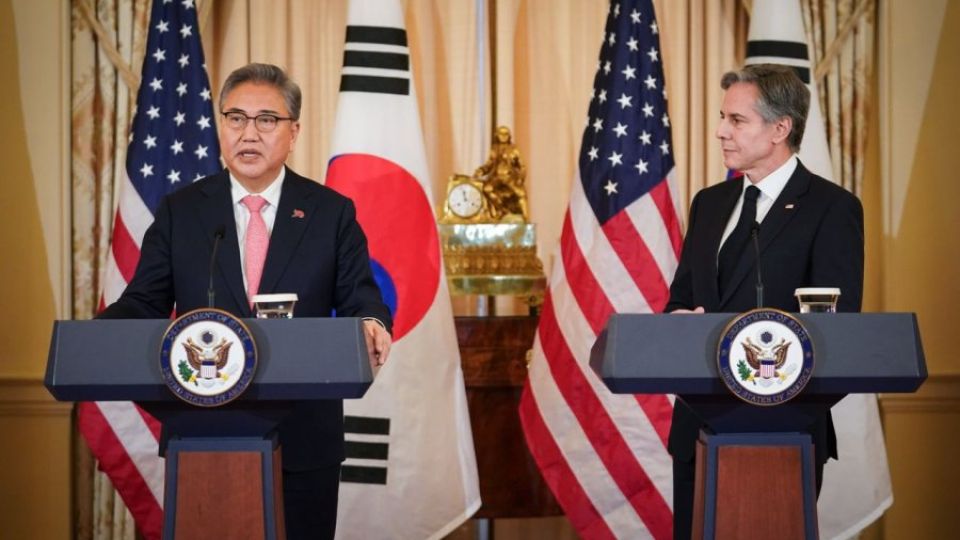February 6, 2023
SEOUL – South Korea and the United States, its biggest ally, have reaffirmed their commitment to using their full range of firepower, including US nuclear weapons, to contain North Korea, while also expanding economic and space exchanges in the latest joint push to mark 70 years of relations this year.
At a Friday meeting with US Secretary of State Antony Blinken in Washington, Foreign Minister Park Jin highlighted “watertight coordination” in dealing with threats from North Korea, which fired off a record number of missiles last year. Park finished his four-day trip Saturday, having met with several security officials and experts.
“We are committed to strengthening extended deterrence while maintaining a robust combined defense posture. Any provocations by North Korea will be met with a firm and united response,” Park said at a press briefing following talks with Blinken.
Extended deterrence, which refers to Washington’s support involving its nuclear weapons to deter attacks on its allies, has been fiercely debated for some time in Seoul, as skeptics increasingly view the pledge as “shallow at best, hollow at worst.” Last week, US Defense Secretary Lloyd Austin flew to South Korea to personally deliver assurances over such US support.
Park also cited joint efforts to stabilize global supply chains and expand space capabilities, an emerging area of cooperation for the two allies. The push comes as South Korea seeks a bigger global role with its latest Indo-Pacific Strategy — the hallmark of President Yoon Suk Yeol’s foreign policy that brings Seoul and Washington ever closer together amid the escalating US-China rivalry.
The wide range of topics floated at the Friday talks will lead to “laying out a blueprint for the next 70 years,” Park said of the ties forged in the aftermath of the 1950-53 Korean War when the two countries signed a mutual defense treaty.
To celebrate the ever-evolving alliance, President Yoon Suk Yeol is expected to meet with US President Joe Biden as early as April or within the first half of this year, according to sources familiar with the matter. Park declined to elaborate on details, saying arrangements were still being made. A state visit by a South Korean leader last took place in 2011.


